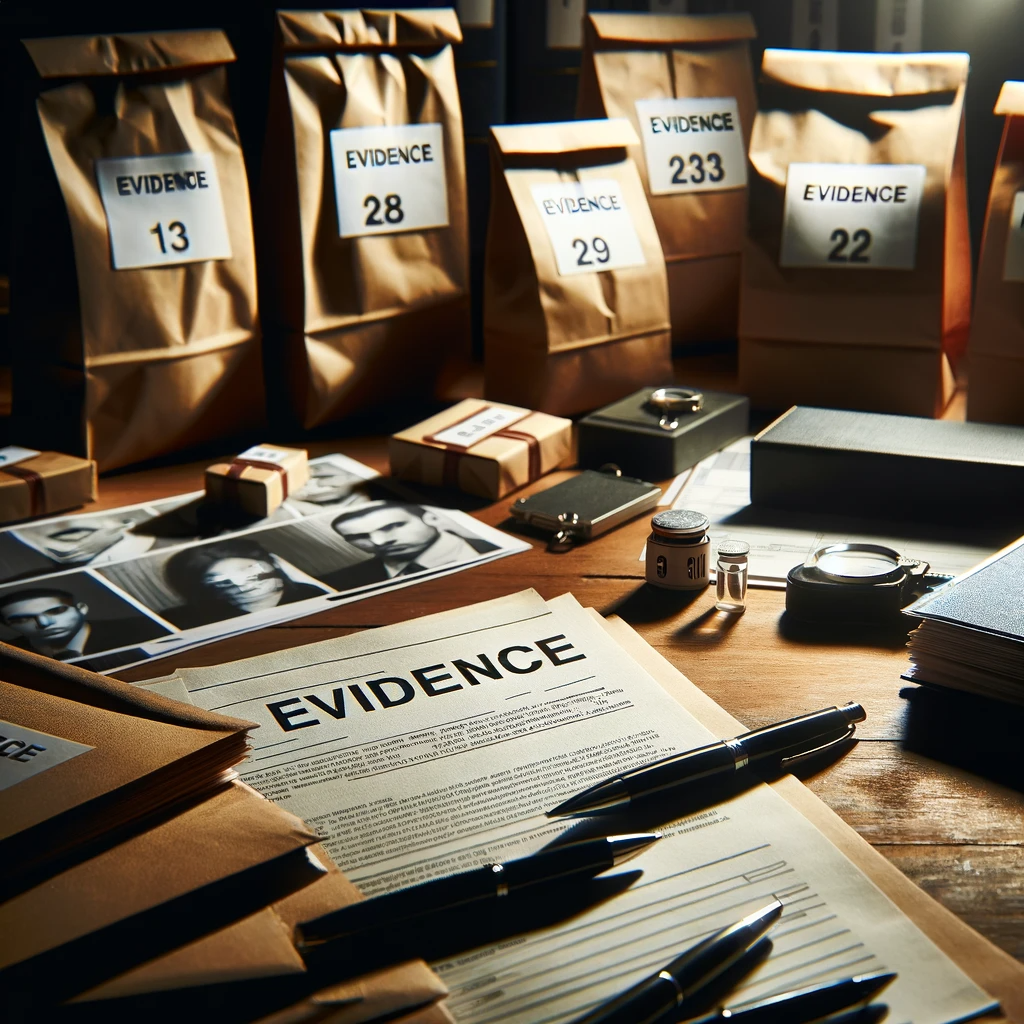Introduction
Evidence is the cornerstone of any criminal case. Whether you’re facing minor charges or serious allegations, understanding the role of evidence is essential. In this article, we will delve into the various aspects of evidence in criminal cases and how it can impact the outcome of your trial. One thing is clear: having an experienced criminal defense attorney like Joel Chorny by your side can make all the difference when it comes to how evidence is handled.
1. Types of Evidence
- Evidence in a criminal case comes in various forms. Here are the key types you should be aware of:
- Physical Evidence: This includes tangible items like weapons, drugs, fingerprints, and DNA samples. For instance, in a murder case, a bloody knife found at the crime scene can be considered physical evidence. It’s the kind of evidence you can touch and see, making it highly impactful in court.
- Testimonial Evidence: Statements and testimony from witnesses, including both lay witnesses and expert witnesses. Imagine a robbery trial where a store clerk testifies that they saw the defendant brandishing a gun during the robbery. This is testimonial evidence, and it often relies on the credibility and recollection of witnesses.
- Documentary Evidence: Documents such as contracts, emails, or text messages that can be relevant to the case. In a fraud case, emails exchanged between the accused and the alleged victim could be crucial documentary evidence. These documents provide a written record of events or communications.
- Circumstantial Evidence: Indirect evidence that implies a fact, even without direct proof. For example, if a suspect was seen fleeing the scene of a crime with a bag of stolen goods, and fingerprints matching the suspect were found on the getaway vehicle, these circumstances together can be considered circumstantial evidence pointing to the suspect’s involvement. It’s like piecing together a puzzle to draw a conclusion.
2. The Significance of Evidence
- The significance of evidence in a criminal case cannot be overstated. It can make or break a case, influencing verdicts and sentencing. For instance, strong evidence can lead to a conviction, while weak or contradictory evidence may result in an acquittal.
- Evidence can also be either incriminating (supporting the prosecution’s case) or exculpatory (supporting the defense). Exculpatory evidence can be particularly powerful in securing an acquittal or a reduced sentence.
3. Collection and Preservation of Evidence
- Evidence collection and preservation are critical processes carried out by law enforcement. To maintain the integrity of evidence, it’s essential to:
- Properly collect and document evidence at crime scenes.
- Store evidence securely to prevent contamination or tampering.
- Maintain a clear chain of custody to track the handling of evidence.
- These procedures ensure that evidence remains reliable and admissible in court.
4. Challenging Evidence
- An experienced defense attorney plays a vital role in challenging the admissibility of evidence. Here are two common strategies:
- Suppression for Violating Rights: Evidence can be suppressed if it was obtained illegally or in violation of the defendant’s rights. For instance, consider a scenario where law enforcement conducts a search without a proper warrant, and discover incriminating evidence. In this case, a skilled and experienced criminal defense attorney can argue that the evidence should be suppressed because it was obtained in violation of the Fourth Amendment right against unreasonable searches and seizures. If successful, this could lead to the exclusion of the evidence from the trial.
- Challenging the Chain of Custody: Maintaining a clear chain of custody is crucial to evidence integrity. The defense attorney may challenge the chain of custody by pointing out inconsistencies or gaps in the documentation of how the evidence was handled. For example, in a drug possession case, the defense could argue that the evidence was mishandled at some point during the process, casting doubt on its reliability. Challenging the chain of custody can be an effective strategy to undermine the credibility of the evidence.
- Successful challenges can lead to the exclusion of evidence, weakening the prosecution’s case.
5. Building a Strong Defense
- As a seasoned criminal defense practice, The Law Office of Joel Chorny carefully examines the evidence to build a robust defense strategy. This may involve:
- Identifying weaknesses in the prosecution’s case.
- Finding inconsistencies or contradictions in witness statements.
- Leveraging exculpatory evidence to prove the defendant’s innocence.
- A well-prepared defense can tip the scales in favor of the accused.
6. Expert Witnesses
- In complex cases, expert witnesses may be called upon to provide specialized knowledge. For example, a forensic expert can analyze DNA evidence, while a ballistics expert can testify about firearms-related evidence.
- Expert

